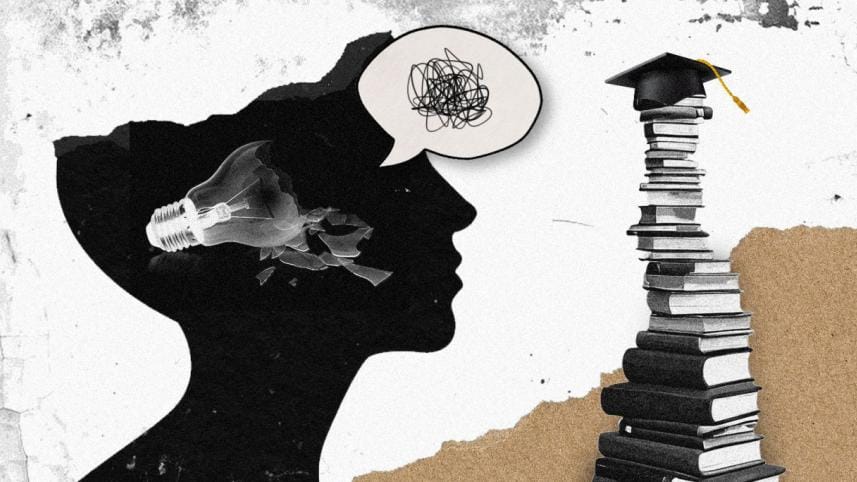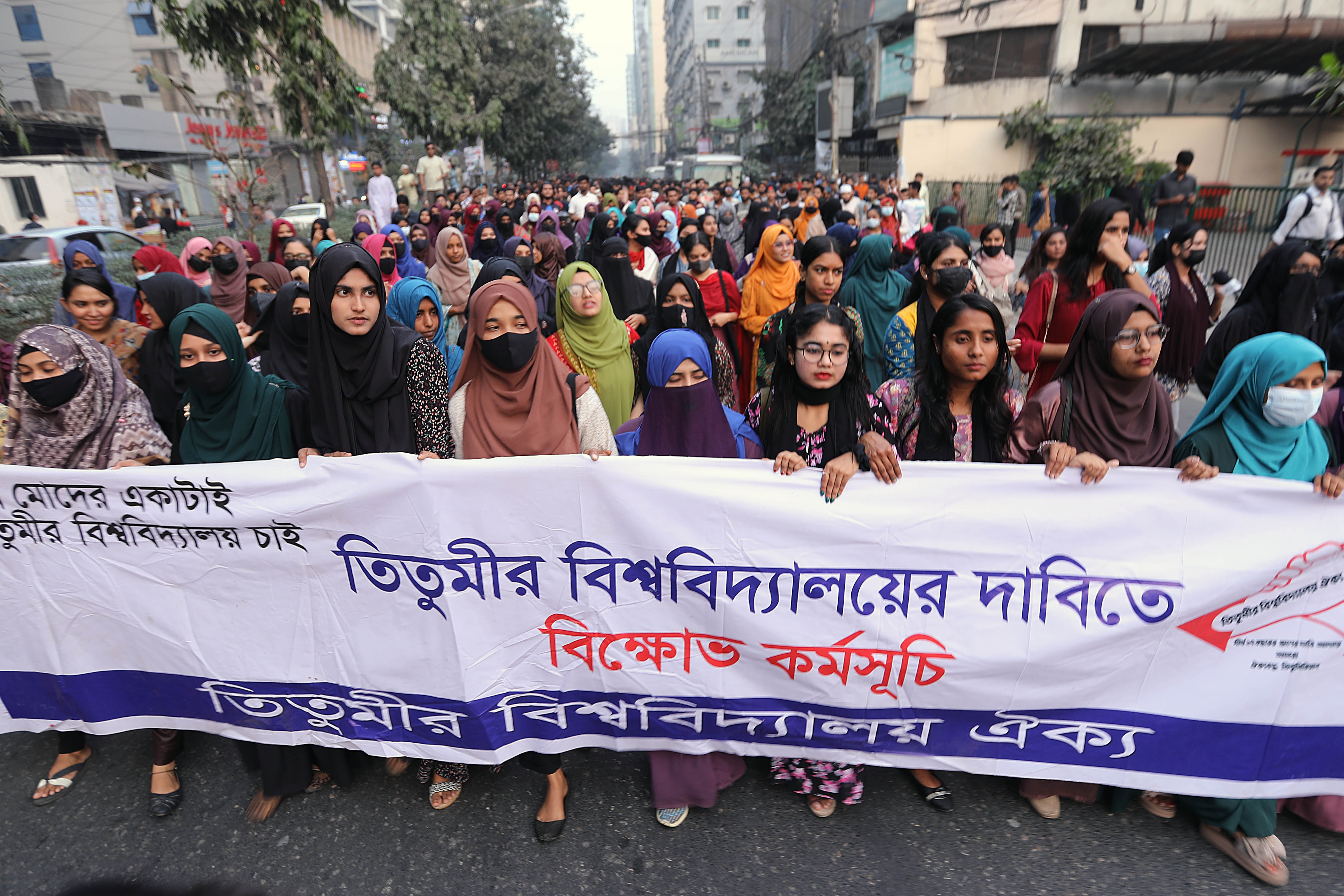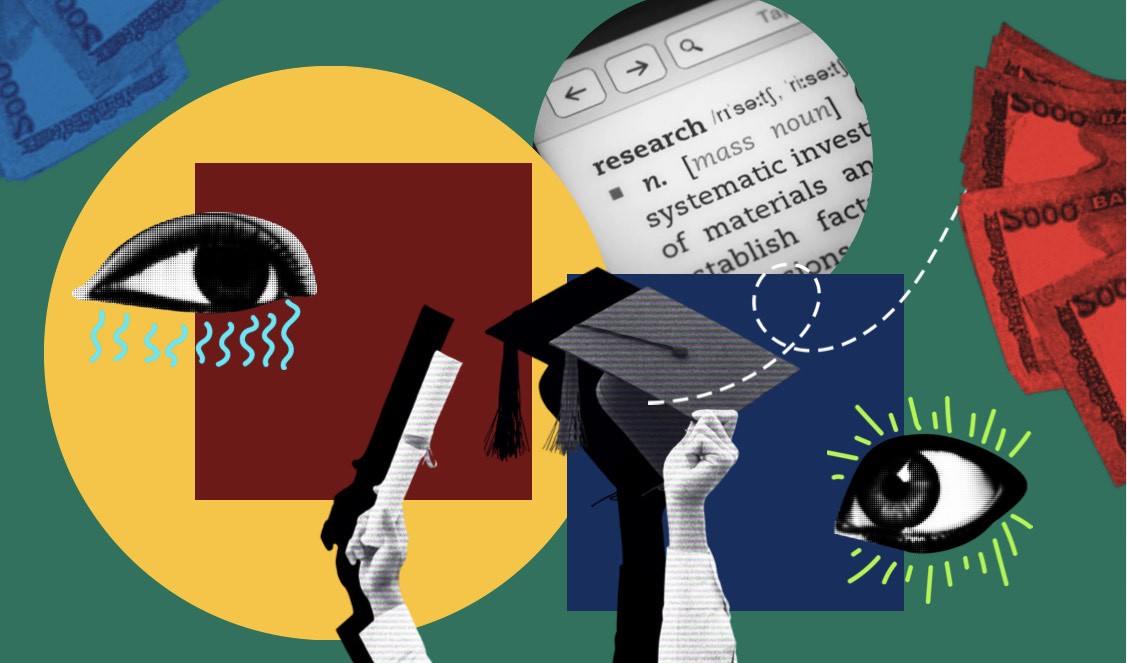The dilemma triangle of our tertiary education

As soon as our HSC, A-Level, or equivalent examinations come to an end, a vast ocean of possibilities opens before us. However, the majority proceed to pursue higher education without much clarity of mind or thought about their future career paths, even in their late teens. Sometimes, we wander away for a while to explore entrepreneurship, but most of us eventually fall back on education, hoping that the next degree will bring us closer to stability. If not, there are Master's programmes at our disposal—avenues through which we can even change disciplines while cluelessly derailing our twenties.
Despite being largely regarded as a gateway to prosperity and social mobility, tertiary education is in profound crisis. This crisis is especially visible in developing nations, where the pressure to don a graduation cap outweighs the pursuit of knowledge. The core challenges facing higher education today—often described as the "dilemma triangle"—collectively undermine the quality, purpose, and value of university degrees, impeding genuine socio-economic development and the realisation of individual potential.
To begin with, the first corner of this dilemma is inflated "status symbolisation." In many societies, including ours, a university degree has tragically mutated from a mark of intellectual achievement into a social commodity. It has become a prerequisite for familial reputation, a good marriage, or a comfortable seat in the corporate hierarchy. This societal pressure ensures that the act of enrolment and the possession of the certificate become the primary goals, relegating the actual educational experience to a secondary concern.
The second vertex of the triangle represents the systemic flaw of "oversimplified access." Due to rapid and largely unregulated expansion, tertiary education has been compromised in terms of academic quality. Driven by political agendas to increase enrolment rates and institutions' thirst for maximum revenue—without balancing service delivery to appropriate standards—access to higher education has become remarkably easy in certain contexts. While democratising education is a noble goal, when access is expanded without corresponding investment in quality control, faculty development, or infrastructure, the entire system stands on precarious ground.
Admission criteria are sometimes designed to enrol large numbers of students. Consequently, oversized class sizes hinder meaningful student-teacher interaction, and compressed curricula leave little room for purposeful learning. For many universities, particularly private and profit-oriented ones, the incentive leans more towards retaining students than fostering their tenacity. This also results in grade inflation and lenient assessments, allowing students to progress through the system without mastering foundational concepts.
The final, and arguably most insidious, aspect is "guided ignorance." Systemic failure is embedded within the educational process itself, where institutions actively guide students towards compliance and superficial knowledge rather than encouraging independent thought. It is the by-product of "status symbolisation," which creates the demand for easy credentials, and "oversimplified access," which makes those credentials attainable through convenient shortcuts.
A lack of emphasis on critical analysis, coupled with curricula that are often outdated or disconnected from modern industry needs, provides fertile ground for "guided ignorance" to hide in plain sight. Students are often taught what to know, but seldom how to learn, evaluate, or adapt. The educational environment discourages intellectual risk-taking, complex problem-solving, and cross-disciplinary thinking—qualities that should ideally serve as the cornerstones of genuine innovation and leadership. Unfortunately, the focus remains on passing standardised exams that test memory retention rather than conceptual application.
On a broader note, the glorification of the leadership mindset and the pursuit of high-status positions are quietly eroding the fundamentally important sense of personal responsibility and accountability among the younger generation—an especially harmful trend for a developing nation like ours. Overcoming this inertia requires a fundamental rewiring of both the purpose and infrastructure of tertiary education, as well as a shift in socio-economic perspectives. Institutions must move their focus from credentialling to capability-building, while the younger generation should be able to chart futures that make them work-ready and resourceful much earlier in life. This calls for reforming curricula to emphasise critical thinking, ethical reasoning, and entrepreneurial skills.
Furthermore, the demand extends to investing in a highly qualified and dedicated teaching force at all levels. Most importantly, society must collectively attain the maturity to challenge the perception that an academic degree is an assured status symbol, and instead insist that it represents genuine intellectual and professional preparedness. Only by systematically dismantling the entire dilemma triangle can we restore the integrity and value of higher education for the next generation of nation-builders.
Nafis Ehsas Chowdhury is a columnist and studies business at the United International University (UIU).
Views expressed in this article are the author's own.
Follow The Daily Star Opinion on Facebook for the latest opinions, commentaries and analyses by experts and professionals. To contribute your article or letter to The Daily Star Opinion, see our guidelines for submission.




 For all latest news, follow The Daily Star's Google News channel.
For all latest news, follow The Daily Star's Google News channel. 

Comments